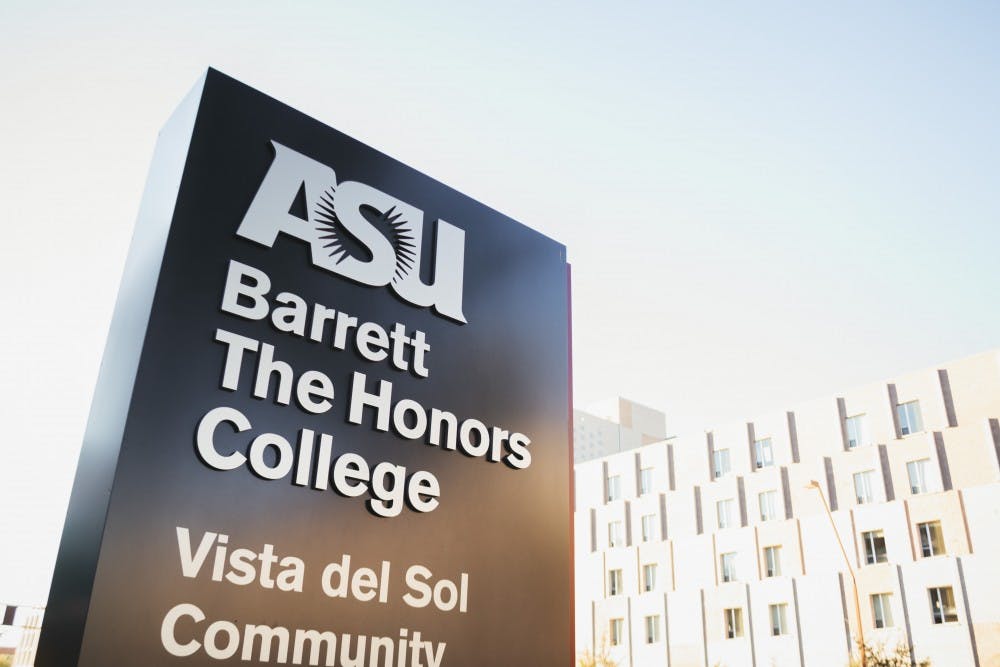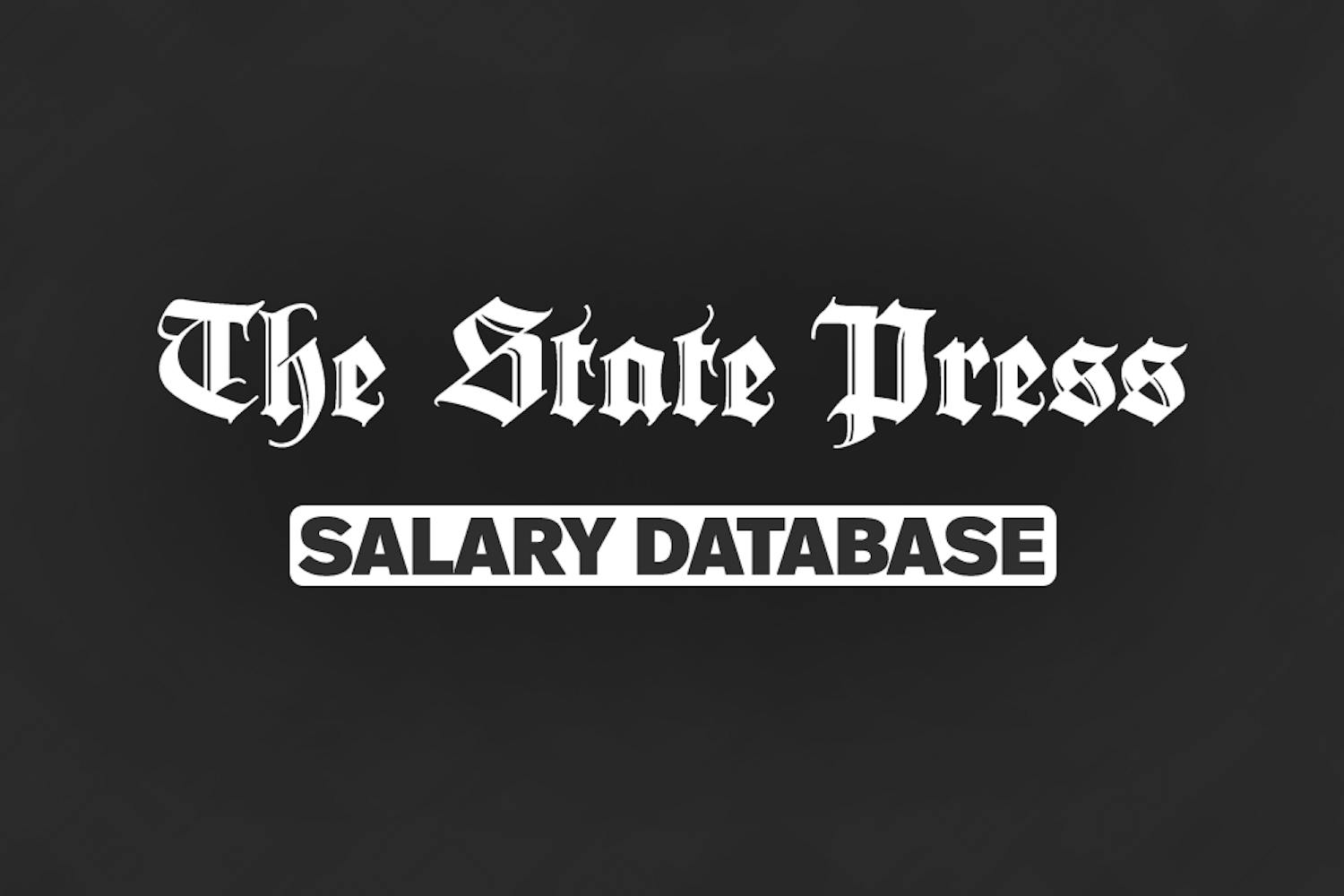Barrett students across the four campuses are still at odds with the administration over the recent proposed fee increase and alleged lack of information surrounding it.
The proposed increase of $250 per semester would take effect for the 2019-2020 academic year, raising the fee for attending Barrett, the Honors College to $1,000 per semester.
Barrett administrators said the increase is needed to accommodate more students and improve Barrett facilities at the smaller campuses. However, some students have responded to the proposal with criticism, saying that Barrett has not been transparent enough about the fee increase and the proposal process.
The Barrett administration held five meetings – two in Tempe and one on each of the other main campuses – to inform students about the fee increase and answer additional questions.
The first meeting on the Tempe campus, which ran for several hours, was held on Feb. 6 and was at times tense and emotional.
While some students said they could see the merits of the fee, many criticized the college’s proposal and said they would have difficulty paying the difference.
“It’s a large increase and I don’t think you’re treating it as such,” one student told Barrett Dean Mark Jacobs at the meeting.
During the meeting, Jacobs said the idea that students could not "find $250 more per semester" sounded "silly."
Another student at the Tempe meeting said that "it takes a lot of nerve for someone who makes $300,000 a year" to lecture students about what is and is not a lot of money, citing Jacobs' $289,500 salary in 2018.
The forum at the West campus was not as tense, according to Nyla Shah, the senator for Undergraduate Student Government West Barrett and a sophomore majoring in medical studies. However, student reactions to the proposal were still largely negative, she said.
Because of the events at the Tempe and West campus, Barrett senator for Undergraduate Student Government Polytechnic, Kyle Horn, a junior studying air management technology, asked students at the Poly campus to maintain their composure during their forum with Jacobs, he said.
"I was really proud of how our campus presented itself," Horn said. "We want to withhold and uphold our Poly pride and how we want to make sure that we present ourselves in a positive way."
Emotions had largely cooled by the time the last meeting was held on the Downtown Phoenix campus on Feb. 15, but many students at the meeting expressed lingering frustration with Barrett’s communication with its student body.
Students said they were upset about receiving little information via email, that the forums were not adequately advertised and that they were held at inconvenient times during the day, making it difficult for students to attend.
The information that students did receive was included in Barrett Honors Digest emails, which mentioned dates, times and locations for the forums that students could go to for additional details.
"A two-way street in communication would be better, and we frankly need to demand it if we’re going to be paying that type of money," Brendan Falk, a Barrett freshman majoring in sports journalism who attended the meeting on the Downtown Phoenix campus, said.
During the forums, Jacobs presented a slideshow detailing how Barrett funds have been used previously and what the increase would be applied toward.
The proposed increase would “support current fee areas," adjust for an extra 2,000 honors students and more, Jacobs said during the forums.
He also said that it would provide increased amounts for thesis and project reimbursements, from the current maximum of $750 to $1,000 per student. It would also provide more travel scholarships and community grants, which waive the Barrett fee for students in financial need.
The current total Barrett operating budget is $17.3 million, with over half of that going toward faculty and staff salaries, Jacobs said. He said the Barrett fee accounts for $9.2 million of Barrett funding after setting aside 17 percent of the fees for financial aid, which is mandated by the University for all fees collected by a college.
Jacobs said Barrett submitted the proposal to the Arizona Board of Regents earlier this academic year, which has to approve all fee increases for Arizona public universities.
The proposed fee increase must pass a vote by the Board before being finalized, which Jacobs said will happen on April 2. He noted that while students have the opportunity to voice their opinions to the Board, previous fee increases from $250 a semester to $500 in 2010 and then to $750 a semester in 2015 passed with student support.
Jacobs said that the sudden increase compensates for the fact that the fee has remained the same since 2015.
"When we ask for this, we're looking back at these years to try to fill the holes that not having any fee increase requires," Jacobs said at the downtown Phoenix forum.
Students also voiced their concerns through a survey created by Undergraduate Student Government Tempe to collect student feedback on both the fee itself and how Barrett communicated with students. The survey had a little more than 400 responses as of 5 p.m. on Monday.
The survey showed that Barrett students at the Tempe campus were not only displeased with the fee increase, but with the lack of information they were provided. Nearly 69 percent of survey respondents as of 5 p.m. said they "strongly disagree" with the statement "I support the Barrett fee increase ... as proposed to the Arizona Board of Regents."
USG Tempe senators passed a resolution on the proposed fee increase, saying that the Barrett administration did not provide students with adequate information about it.
Students created a Change.org petition after the first Tempe meeting in order to protest the fee, saying that the increase would hurt Barrett students.
"To not give the affected population of a say in the matter seems counterintuitive to Barrett’s mission and goal to empower students," the explanation for the petition reads.
Jacobs dismissed the petition and survey results during the question-and-answer portion of the downtown Phoenix forum, saying that students responded to them in a reactionary manner before hearing his explanation. He also said that individuals who are not Barrett students could have signed the petition or responded to the survey, skewing the results.
The Barrett administration emailed the PowerPoint used in the meetings to Barrett students on Feb. 16, along with a brief explanation and a narrative to accompany the slides.
In the email, Jacobs reiterated that the administration tries to be as transparent as possible, and that he wished that students had given him the chance to speak with the campuses before reacting to the proposal.
"I hope you all know that we strive to be open and transparent with you about all issues that come up that generally affect your lives as honors students," he wrote, apologizing for the length of time it took to send out the slides before students began reacting to the news of the proposed fee increase on social media.
"We were following what we thought was the upfront way to present the request to you by being literally up in front of you in a venue in which you could ask any question you wanted," the email said. "However, the time it took to set up those meetings was in retrospect too long and I am sorry we could not have moved faster."
During the question-and-answer session, students asked whether the money from the fee increase could instead be derived from other sources and if the increase would lead to additional benefits for honors students, including more diversity among honors faculty.
Falk attended the downtown Phoenix meeting and asked about possible alternatives to the fee increase to advocate for students who might be negatively impacted by it.
"I would be okay, but there are people who have chosen to enter the Barrett program and won't get a chance to finish it out because they aren't financially able to," Falk said after the meeting.
To the students who said they were so frustrated by the fee increase that they were considering dropping Barrett, Jacobs emphasized that Barrett is voluntary and not required.
"Remember, Barrett is something that you elect to do," Jacobs said at the Tempe campus meeting. "That’s one of the things I couldn’t understand. For some of the students, I think if it was such an irritating thing, they shouldn’t have elected to do it or they should elect not to do it."
Editor's note: This story was updated at 8:02 p.m. on Feb. 20, 2019 to correct a typo in the 11th paragraph.
Reach the reporters at bpietsch@asu.edu and krquaran@asu.edu and follow @bryan_pietsch and @kiaraquaranta on Twitter.
Like The State Press on Facebook and follow @statepress on Twitter.




